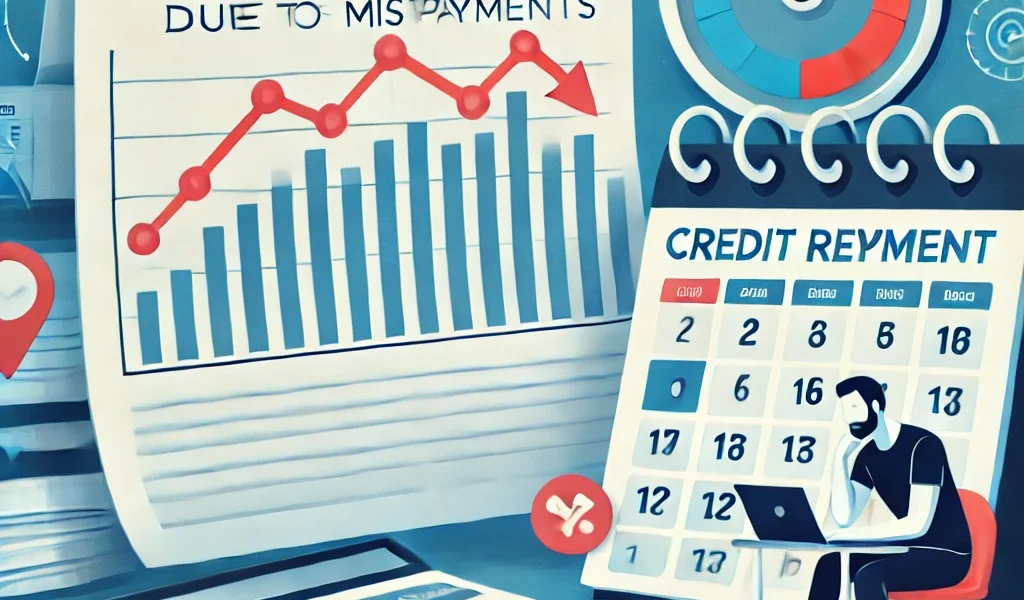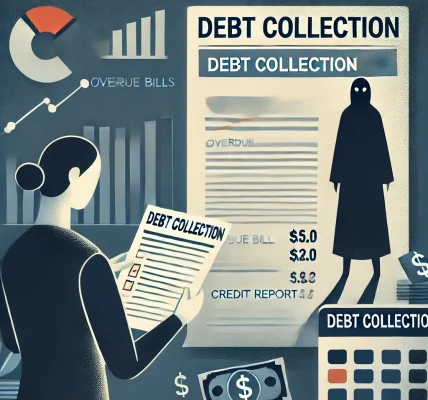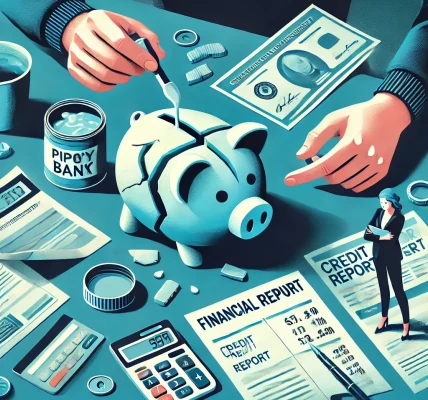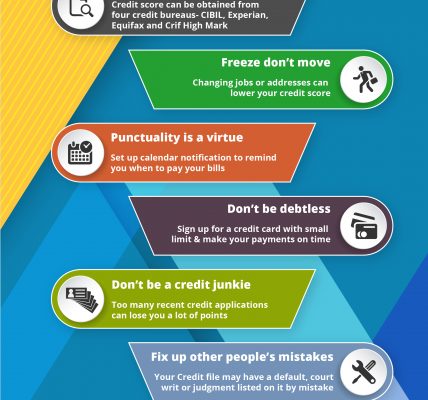Introduction
Late payments can have a severe impact on your credit score, making it harder to secure loans, credit cards, and even rental agreements. Missing a due date by just a few days might not seem like a big deal, but lenders and credit bureaus see it differently. This guide will help you understand the consequences of late payments, how they affect your credit score, and practical steps to recover.
How Late Payments Impact Your Credit Score
1. Understanding the 30-Day Rule
Most lenders report late payments to credit bureaus only after 30 days past the due date. If you pay a few days late, you may incur a late fee but avoid a credit score penalty. However, once you cross that 30-day threshold, it can significantly impact your credit score.
2. Credit Score Damage Timeline
- 30 Days Late: A minor drop in your score (typically 30–50 points). This can be reversed quickly with timely future payments.
- 60 Days Late: A more significant drop, showing signs of financial distress.
- 90+ Days Late: A serious red flag for lenders. Your score may plummet by 100+ points, making it difficult to secure future credit.
- 120+ Days Late: The debt might be sent to collections, further damaging your score and making recovery harder.
3. How Much Your Score Drops
The impact of a late payment depends on factors like:
- Your current credit score: A higher score sees a bigger drop.
- How many late payments: One is bad, multiple are worse.
- Time since the last late payment: Older late payments affect your score less over time.
- Type of account: Late mortgage payments impact your score more than late credit card payments.
Additional Consequences of Late Payments
❌ Higher Interest Rates
Late payments make you a higher-risk borrower. Lenders may increase your interest rates, costing you more in the long run.
❌ Lower Credit Limits
Banks may reduce your available credit, increasing your credit utilization ratio and further lowering your credit score.
❌ Difficulty Getting Loans
Future lenders may deny applications for mortgages, car loans, or credit cards due to past missed payments.
❌ Negative Marks Stay for 7 Years
A late payment remains on your credit report for seven years, though its impact lessens over time.
How to Recover from Late Payments
✅ 1. Pay Off the Balance ASAP
If you’re within the 30-day grace period, pay immediately to avoid a credit score penalty. If already reported, settle the payment to prevent further damage.
✅ 2. Contact Your Lender
Call your lender and explain your situation. If you have a good payment history, they may agree to remove the late payment as a courtesy.
✅ 3. Set Up Automatic Payments
Avoid future late payments by enrolling in auto-pay or setting up reminders for due dates.
✅ 4. Dispute Errors on Your Credit Report
If you believe a late payment was reported incorrectly, file a dispute with the credit bureau. Providing proof of on-time payment can lead to removal.
✅ 5. Request a “Goodwill Adjustment”
Write a goodwill letter to your lender, politely requesting removal of the late payment due to an isolated mistake.
✅ 6. Reduce Overall Debt
Lowering your total debt improves your credit utilization ratio, helping to offset the negative impact of late payments.
✅ 7. Rebuild Credit with Positive Activity
Consistently making on-time payments, using credit-building loans, or applying for a secured credit card can help improve your score over time.
Preventing Future Late Payments
🔹 Budget for Due Dates: Keep track of billing cycles using budgeting apps. 🔹 Enroll in Text or Email Alerts: Many banks offer reminder notifications. 🔹 Keep an Emergency Fund: Helps avoid missed payments due to unexpected expenses. 🔹 Negotiate New Payment Terms: If struggling financially, ask lenders for hardship programs or lower minimum payments.
Conclusion
Late payments can hurt your credit score, but they don’t have to define your financial future. By taking proactive steps, you can recover and build a stronger credit profile over time.
📢 Action Steps: ✔ Check your credit report for errors. ✔ Set up payment reminders or auto-pay. ✔ Pay off outstanding late payments ASAP. ✔ Negotiate with lenders for possible removal. ✔ Commit to on-time payments moving forward.




